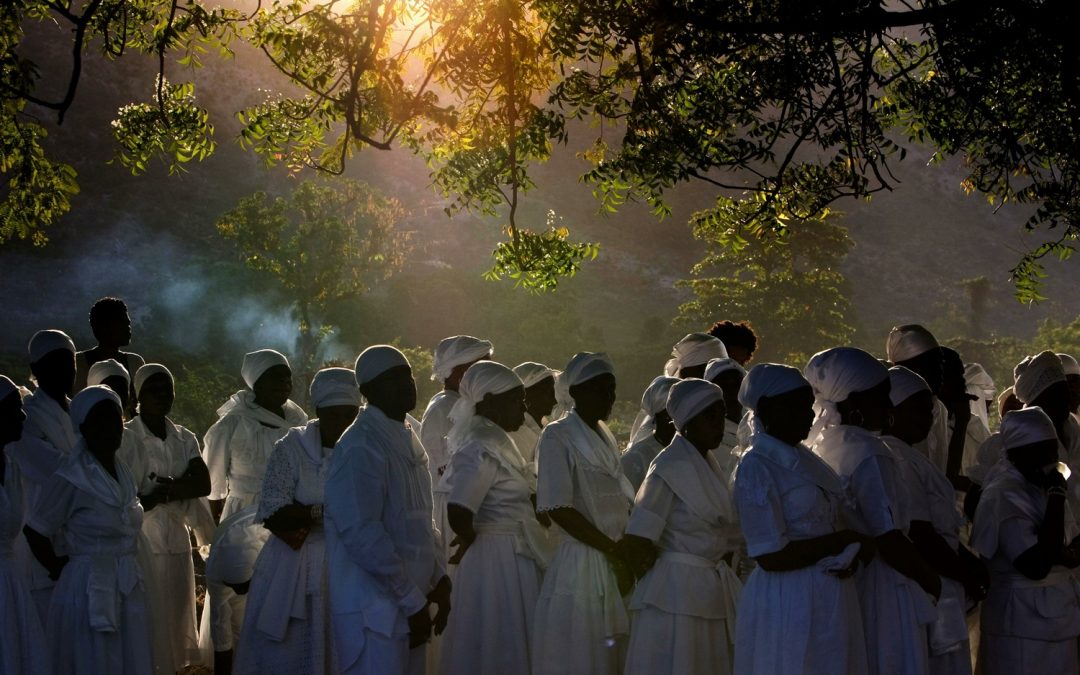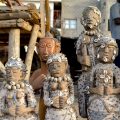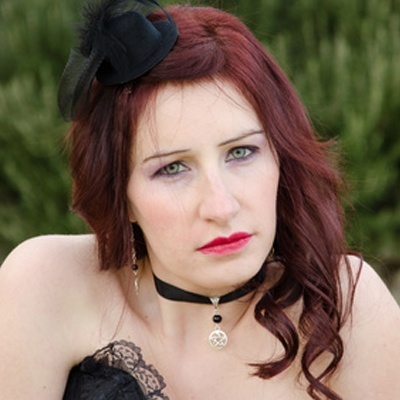Table of Contents
Voodoo facts are a sensationalized caricature in pop – a culture of Voudon, an Afro – Carribean religion that originated in Haiti; though some followers can also be found in countries like the Dominican Republic, Jamaica, Brazil, and the U.S. It almost has nothing to do with so-called voodoo dolls or zombies. Voodoo facts often involve, according to Desmangles, a Haitian professor at Hartford’s Trinity College; a whole assortment of cultural elements: personal creeds and practices, including an elaborate system of folk medical practices; a system of ethics transmitted across generations [including] proverbs, stories, songs, and folklore… voudon is more than belief; it is a way of life.” You can see the whole text in “The Encyclopedia of the Paranormal” (Prometheus Books, 1996).
Important Voodoo Facts
Voodoo facts are all about their belief in a supreme being that they refer to as Bondye; an uninvolved and unknowable creator god. Many Voodoo believers worship many loas (spirits); each one of whom is responsible for a particular part or domain of life. For instance, if you’re a farmer and you might give offerings and praise to the spirit of agriculture; if you suffering from unrequited love, one can leave praises or offer for Erzulie Freda; the spirit of love, and other deities. In addition to that, impeding or helping the affairs of humans can also be manifested by the loa through possessing the bodies of the people who worship these deities.
Spiritual Possession
Followers of the Voodoo religion also believe in the Voodoo fact that universal energy and a soul that can leave the body during spirit possession and dreams. In Christian theology; spiritual possession is often considered to be an act of evil because Satan or other kinds of demonic spirit trying to enter an unwilling human vessel. In Voodoo, however, possession by a loa is desired. Priest or priestesses in a sort of guided ceremony consider possession is often considered valuable and a first – hand connection and experience with the spirit realm.
Voodoo Facts: History of Voudon
Voodoo facts originated with slaves who combined elements of their West African beliefs and traditions with the Roman Catholicism imposed upon the slaves by their masters in a process called syncretism. A 1685 law forbids the practice of African religions; and required the slaves to master the Christian religion within eight days of their arrival. The Catholic Church condoned slavery as a tool that converts Africans to morally upright Christians.
Slaves are usually forced to adopt Catholic rituals which gave them double meanings; and in the process, many of the spirits they believe in became linked with Christian saints. Furthermore, Desmangles notes, “Many of the African spirits were adapted to their new milieu in the New World. Ogun, for instance, the Nigerian spirit of ironsmiths, hunting and warfare took on a new persona… He became Ogou, the military leader who has led phalanxes into battle against oppression. In Haiti today, Ogou inspires many political revolutions that oust undesirable oppressive regimes.”
The Black Republic
Even if Haitian slavery ended around the 1800s, the followers of Voodoo were usually persecuted by authorities who demonized the Voodoo religion. There’s an 1889 book called “Hayti” or the “Black Republic” that falsely attributes human sacrifices, various atrocities, and even cannibalism to the Voodoo religion which further spread the fear of the religion to other people particularly in the west. Many fundamentalist Christians today still have suspicions with Voodoo and link it with some form of Satanism, occult or black magic. Even today the fact “Voodoo” is sometimes used as an adjective to describe something that’s mysterious, unworkable or unknowable.
Voodoo Facts: Zombies
The more sensational aspects of the Voudon religion are the false belief among many people that they perform animal sacrifices and they have zombies. It provided fodder for countless television shows and film at the expense of the real Voodoo religion. Zombies are an especially good example of how a religious element can totally be taken out of context and become a global Voodoo fact phenomenon.
The word zombie in the Oxford English Dictionary first appeared in the English language in 1810 when Robert Southey, a historian; mentioned it in his book called History of Brazil. But this zombie thing wasn’t the familiar brain – eating human – like monster but instead like many Voodoo loa in the form a West African deity. The word later suggest that zombies are a human force that leaves the shell of a body and ultimately became a creature that’s human – like but lacks intelligence; self – awareness and a soul.
Haitian Zombies?
The original Haitian zombies were also not villains but more of victims. They were said to be people that lived again and brought back through sometimes controlled magical means by priests or bokors. Sometimes, the zombification was done as punishment (as it make others believed that the dead can still be abused after death) which is why it was believed that the zombies have been used as somewhat of a slave and were tasked to be a laborer on the sugarcane plantations and farms though no evidence or record found about the “zombie – filled farms.”
Voodoo became popular in pop – culture but Hollywood portrays little to no resemblance of the Voudon practices or beliefs. Voodoo became a prominent feature in the state of New Orleans particularly in the tourism industry. There are countless exhibits, museums, shops, and tours capitalizing on the historic connection of the city to the Voodoo religion. Of course, stripping rituals and sacred objects out of their original context; and pretend that it is a Voodoo fact for commercial exploitation is nothing new. For instance, you can witness Chinese – made Native American dream catchers for sale at penny shops.
Voodoo Religion
In the end, the fact is, Voodoo definitely has a huge undeserved reputation as a sinister type of religion. Even though some rituals may involve animal sacrifices, it’s hardly unique since many other religious traditions also have used the blood of animals as sacrifices including Hinduism, Islam, Judaism and Christianity. The irony is that Voodoo fact’s best – known and most sensational features; such as zombies and voodoo dolls actually have little to do with the religions practices and beliefs.
Voodoo has since spread to other nations in Africa, the North and South America as well as Caribbean. In Haiti and Benin, Voodoo fact is now officially recognized as a religion. Nevertheless, the Voodoo religion up to this day is still a misunderstood religion and that’s because of the media’s inaccurate portrayal. Instead of linking this religion with Voodoo dolls, bizarre rituals or zombies, we should take the time to better understand the real Voodoo facts, and view it not just a religion but also a way of life, or a set of guiding principles held by its followers.






 I love to write books about alternative religion, occult, and spirituality. My books are written for everyone in an easy to read and understandable style.
I love to write books about alternative religion, occult, and spirituality. My books are written for everyone in an easy to read and understandable style.